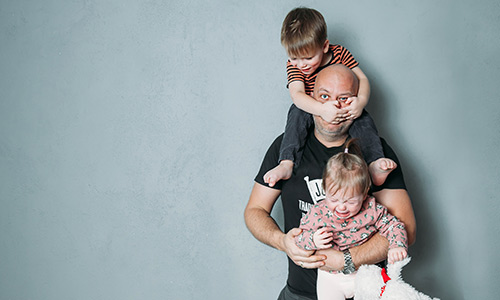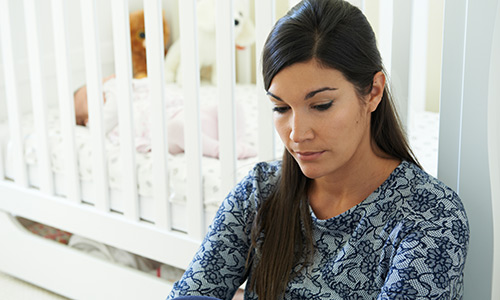Coping with life changes when you start a family

Giving birth, welcoming a new life into the world and becoming a parent is an exciting time, full of new beginnings and possibilities.
From bonding with your newborn to embracing a new life stage, there are lots of changes to take in and accommodate. While some changes will come naturally, others will require more adjustment, but there are tools to ease the transition. Knowing what to expect and how to prepare is a useful first step on your journey.
Physical changes
Sleep deprivation, hormonal changes and aches and pains thanks to the physical rigors of delivery and new parenthood are characteristic of the postnatal period. The good news is postpartum pain, and bleeding should get better every day.
Speak to your GP for support and advice if this is not the case, or if you’re feeling sad or anxious, you’re having trouble holding urine or wind, you’re soiling yourself or if having sex is painful.
Following the six-week check, new parents may feel like setting some realistic health goals. Now is not the time to embark on a punishing regime but it’s important to incorporate self-care into your new routine. Mindfulness, gentle exercise and relaxation techniques can all help new parents cope with the transition and demands of their new role.
Other physical changes such as panic attacks, sleeplessness, extreme tiredness, loss of appetite, aches and pains and generally feeling unwell could be symptoms of postnatal depression (PND). Be sure to discuss these with your GP.
Emotional changes
While ‘Baby Blues’ during the weeks following birth are common, the extreme emotions, anxiety and feelings of irritation can be a shock during a time when you expected to feel elated by the arrival of your new baby.
These feelings are a normal reaction to the huge life changes and hormonal shifts during this time and usually lift on their own accord, but for 1 in 10 women they can develop into postnatal depression. A loss of interest in the baby, feelings of being unable to cope, hopelessness and excessive anxiety, crying all the time and being unable to enjoy or concentrate on usual activities suggest you should seek advice from your GP or therapist.

Early treatment for PND is preferable. In mild cases, this could include cognitive behavioural therapy.
More severe cases may require antidepressant medication. Your GP will be able to prescribe medication that is compatible with breastfeeding.
Techniques to help new parents
Mindfulness
Mindfulness can encourage new parents to slow down and respond mindfully to challenges as they arise.
Try the STOP technique before responding to challenging situations:
S – Stop. Just stop. Become aware of what’s happening and your reactions. Notice the sounds, what can you see, your thoughts and how your body feels.
T – Take a deep breath.
O – Observe. Notice your breath, and how it makes you feel. Take another breath and look around. Notice what is going on.
P – Proceed. Now you’re more aware, you can respond more intentionally and mindfully.
Look for opportunities for multi-sensory experiences
Many of the new activities you'll engage in as a parent lend themselves to mindfulness as they involve multiple senses. See each action as an opportunity to pay attention to the present moment.
For example, when your baby is feeding, get into a comfy position, making sure your back, and the weight of the baby, are supported. Straighten your spine. Focus on the motion your baby makes as they feed. Notice the rhythm and how each movement is slightly different from the last. When your mind wanders, bring your attention back to their feeding motion.
Don’t lose yourself
In the early stages of new parenthood, everything is in flux. You’re busy trying to establish your new ‘normal’ and it’s easy to lose sight of who you are.
Referring to your core values as a reminder can be helpful. Perhaps, for example, you value ‘physical health and looking after yourself’. Before having a baby, you may have nurtured this value with behaviour such as going to the gym.
While having a baby may disrupt your behaviour, values often remain constant. It’s important to find new ways to nurture your values: if they go untended, mood tends to dip.
Establish a support system
Once life settles down, and you feel comfortable leaving your baby for short periods, you may consider expanding your self-care routine to include more ‘me’ time. Booking the baby into a crèche so you can go to a yoga class or finding a babysitter you trust so you can enjoy a date night with your partner can help restore balance.
Why not check out the N Stars Children's Crèche and Junior Programme at your local Nuffield Health? We can help you embrace parenthood, make the most of this exciting time and strike a positive balance in your new life.
Last updated Thursday 23 January 2025
First published on Wednesday 27 February 2019

